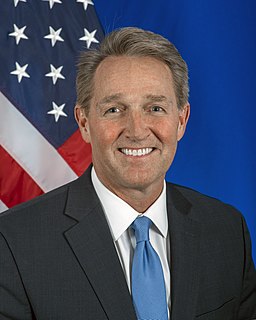A Quote by Margaret Hoover
Portman embodies the formula for GOP modernization: a conservatism that unapologetically applies the principle of individual freedom consistently to both fiscal and social policy. The senator has breathed new life into a national party grasping for traction with young Americans.
Related Quotes
I think the Respublican party's lost its way. We have given into nativism and protectionism. And I think that, if we're going to be a governing party in the future, and a majority party, we have got to go back to traditional conservatism, limited government, economic freedom, individual responsibility, respect for free trade. Those are the principles that made us who we are.
I don't understand how the Republican party is the party with the reputation for fiscal conservatism and fiscal sanity, when they're the ones who run up the debt. It was Reagan who ran up the debt and now Bush is doing it again, and in between, Clinton and Bush's father, I must say, worked so hard to get that deficit and that debt down.
Northeastern conservatism is moderate, accepts the modern welfare state, and dislikes mixing religion with politics. Western conservatism is hawkish, hates government, and embraces individual freedom. Southern conservatism is populist, draws on evangelical Christianity, and plays upon racial resentments.
The insistence on truthfulness does not disturb the freedom of the individual. The social obligation implied in Satyagraha turns the freedom of the individual into moral freedom. An atheist is free to say or to do what he likes, provided he does what he says and says what he does. So, in the context of social relations, the freedom of the individual is moral freedom.
Is the appointment of Chaplains to the two Houses of Congress consistent with the Constitution, and with the pure principle of religious freedom? In strictness the answer on both points must be in the negative. The Constitution of the U. S. forbids everything like an establishment of a national religion. The law appointing Chaplains establishes a religious worship for the national representatives, to be performed by Ministers of religion, elected by a majority of them, and these are to be paid out of the national taxes. Does this not involve the principle of a national establishment ... ?
Our leaders ranged from bad to extraordinary. But through it all, the GOP was the one party even vaguely amenable to limited-government conservatism, to at least some adherence to the Constitution over the social preferences of the moment, and to the constraints on government power that our Founding Fathers so cherished.
One of the basic philosophical tenets of conservatism - which says that the more power devolves from the federal government to the states, the greater individual freedom grows - is just flatly contradicted by crucial junctures in the country's life, most conspicuously in the 1860s and 1960s, when it's been the federal government that's interceded against the states to secure individual freedom.



































